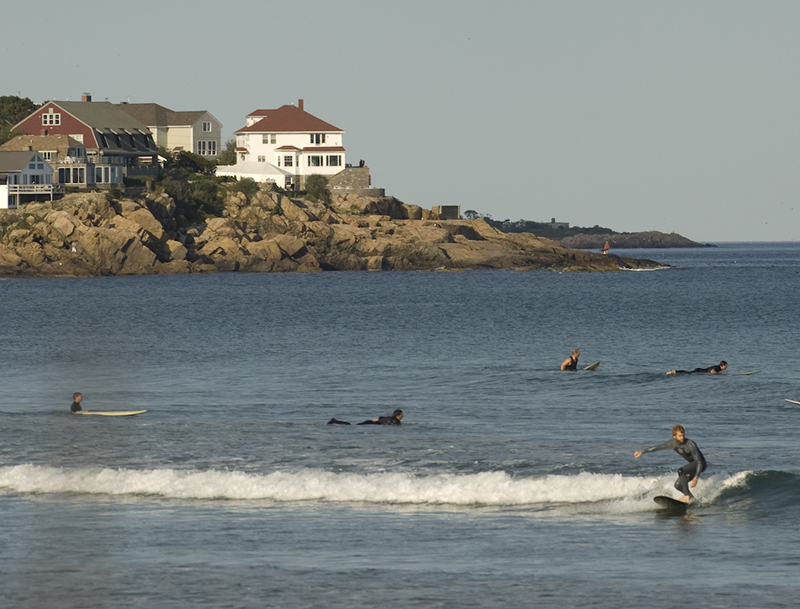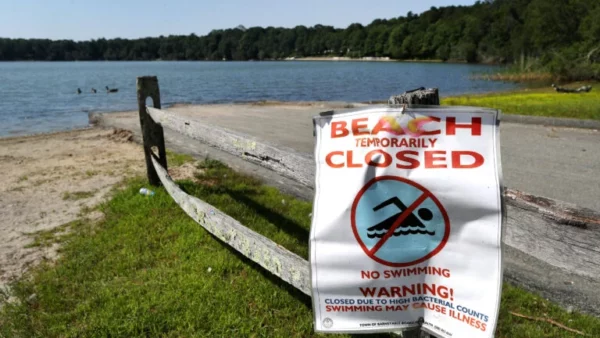
When President Trump released his proposed budget to Congress, we already knew to expect severe cuts across almost every program. But, the proposal went beyond even our worst fears, especially when it comes to programs that protect our air and water, and support the most vulnerable communities among us.
While the President’s proposal is just that – a proposal – it does make a troubling statement about this administration’s priorities. One area that is clearly not a priority is funding for the National Oceanographic and Atmospheric Administration (NOAA), the agency within the Department of Commerce that focuses on climate, weather, oceans, and coasts. The President’s proposal cuts 16 percent of the Department of Commerce budget, mostly to NOAA programs that currently fund climate science research and coastal resilience grants.
These NOAA cuts seem to be premised on the notion that if the U.S. doesn’t measure and monitor climate change, climate change doesn’t exist. Unfortunately, climate change is real, it’s happening now, and it must be addressed – before it’s too late.
Supporting Coastal Communities is More Important Now Than Ever
NOAA plays a critical role in the lives of all coastal New Englanders. It funds research, management, and stewardship of the ocean including commercial fishery management and marine conservation efforts.
One of its most critical programs to New Englanders is the national Sea Grant program, which supports 33 colleges and universities that conduct research, education, and training about the ocean and our coast. Trump’s budget proposal would cut the $73 million program entirely, which would impact funding to universities here in New England, including the universities of Maine, New Hampshire, Connecticut, and Rhode Island.
The grants support New England fishing jobs, while supporting research into new industries such as sustainable aquaculture. It also supports the training of undergraduate and graduate students at the universities that receive its funds, helping ensure the next generation is prepared to protect our coastal economies and communities.
Among other NOAA items on the chopping block is $250 million for coastal research programs. These programs support locally driven and science-backed decision making for how to manage ocean resources on the ground level, including helping our coastal communities prepare for the impacts of climate change, such as sea level rise and increasingly violent storms.
New England’s economy is intimately linked with the health of our ocean. With our fisheries under pressure and climate impacts already being felt here, this is exactly the wrong time for the federal government to be turning its back on our seaside communities. As the Gulf of Maine warms faster than almost any other ocean area in the world, our region must be able to develop resiliency plans that take this into account. That means making sure our coastal communities are prepared to deal with the impacts of warming waters – whether it’s the threats to our health and homes posed by increased storm surges and sea-level rise, or the threats to our livelihoods posed by ocean acidification. NOAA-funded grants currently address these issues and more, and, by cutting them, the administration is effectively saying it’s okay to leave people’s safety and homes in harm’s way.
We Won’t Back Down
Make no mistake: Trump’s budget proposal is a disaster. It ignores the very real risks and impacts of climate change, while leaving the most vulnerable among us out in the cold. But we won’t let Trump pull a fast one on us – we know that protecting the health of New Englanders and our communities means studying climate change and protecting our coasts. That matters, and we won’t back down. We need to use our collective resources to fight back for all of the ways people and the planet are at risk.
Conservation Law Foundation joined 370 other groups in signing on to a joint letter sent to the White House opposing these drastic cuts. This massive response included signatures from prominent marine scientists and researchers, members of Maine’s state legislature, and concerned community and environmental groups from up and down America’s coasts.
As Congress makes its own budget recommendations, we’ll be communicating to our elected officials that proposed cuts to NOAA’s budget won’t cut it for New England’s coasts. Senator Sheldon Whitehouse of Rhode Island said succinctly that the Trump administration’s new budget recommendations would never see the light of day beyond the floor of Congress. We certainly hope he’s right. Climate science, marine research, and the resulting progress is incredibly important – now more than ever – for all of us who depend on a healthy ocean and thriving coasts.



